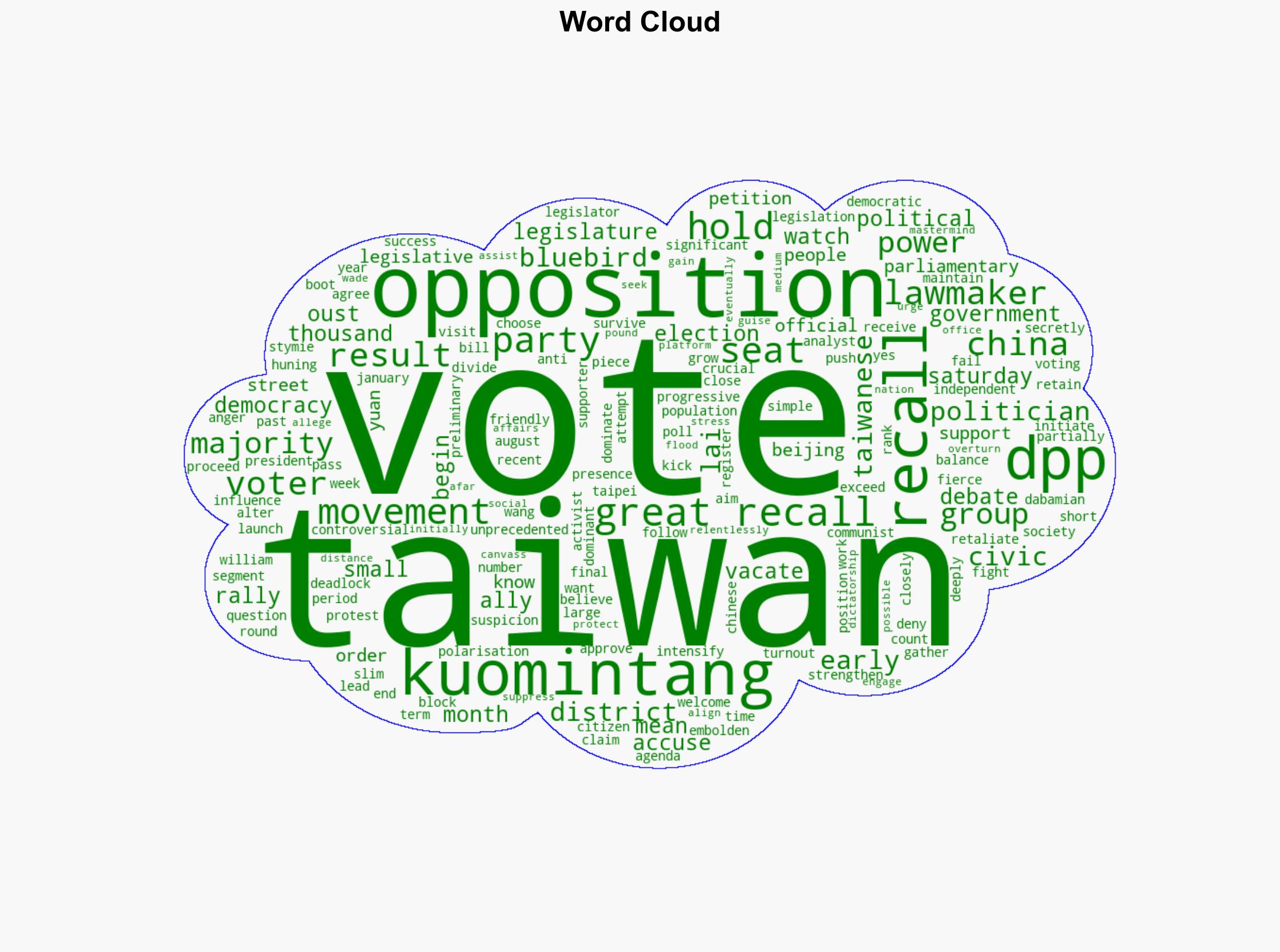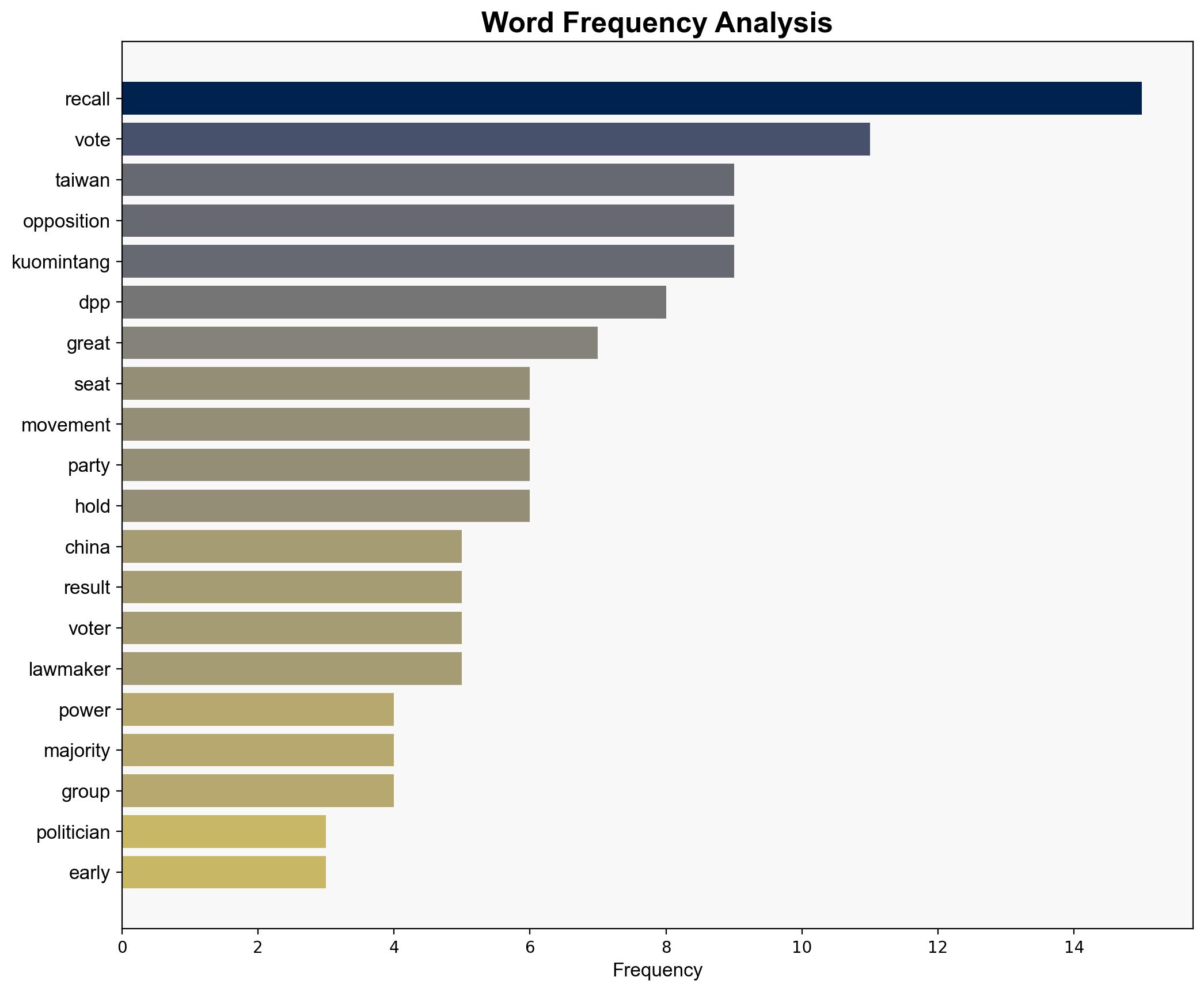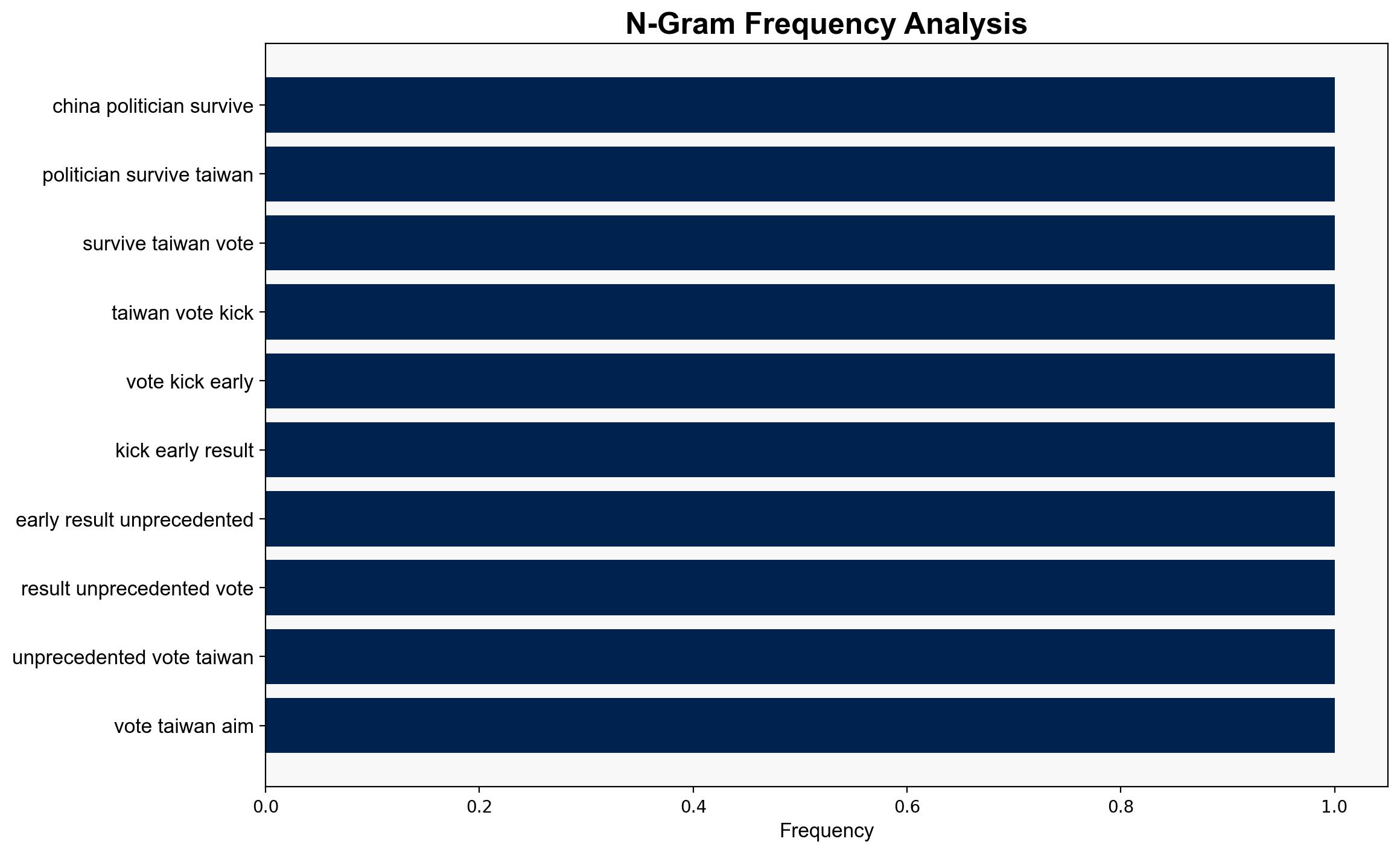Taiwan holds controversial vote targeting ‘pro-China’ lawmakers – BBC News
Published on: 2025-07-25
Intelligence Report: Taiwan holds controversial vote targeting ‘pro-China’ lawmakers – BBC News
1. BLUF (Bottom Line Up Front)
The most supported hypothesis is that the recall vote is a strategic maneuver by the Democratic Progressive Party (DPP) to consolidate power and counteract perceived pro-China influences within Taiwan’s legislature. Confidence level is moderate due to the complexity of domestic political dynamics and external influences. Recommended action is to monitor the political climate in Taiwan closely, focusing on the potential for increased polarization and its impact on regional stability.
2. Competing Hypotheses
1. **Hypothesis 1**: The recall vote is primarily a domestic political strategy by the DPP to weaken the opposition Kuomintang (KMT) and strengthen its legislative position by targeting lawmakers perceived as pro-China.
2. **Hypothesis 2**: The recall vote is a genuine civic movement driven by public concern over the influence of China on Taiwan’s political landscape, with the DPP’s involvement being more reactive than proactive.
Using the Analysis of Competing Hypotheses (ACH) 2.0, Hypothesis 1 is better supported. The DPP’s eventual support for the recall movement, despite initial distancing, suggests a strategic alignment with the movement’s goals. The involvement of civic groups like the Bluebird Movement could be seen as a grassroots effort, but the DPP’s engagement indicates a broader political strategy.
3. Key Assumptions and Red Flags
– **Assumptions**: It is assumed that the DPP’s actions are primarily politically motivated rather than ideologically driven by democratic principles. It is also assumed that the KMT’s perceived pro-China stance is a significant factor in the recall efforts.
– **Red Flags**: The potential for cognitive bias exists in interpreting the DPP’s motivations as purely strategic. There is also a risk of underestimating the genuine civic discontent with perceived foreign influence.
– **Inconsistent Data**: The extent of China’s influence on the KMT and the actual level of public support for the recall movement remain unclear.
4. Implications and Strategic Risks
– **Political Polarization**: The recall vote could exacerbate political divisions within Taiwan, leading to increased instability.
– **Geopolitical Tensions**: Heightened tensions between Taiwan and China could arise if the recall is perceived as a direct challenge to Chinese influence.
– **Economic Impact**: Prolonged political deadlock may affect Taiwan’s economic policies and international trade relations.
– **Cyber and Psychological Warfare**: Potential for increased cyber activities and information warfare from external actors seeking to influence the outcome.
5. Recommendations and Outlook
- Monitor political developments in Taiwan for signs of increased polarization and potential shifts in legislative power.
- Engage in diplomatic dialogue with regional partners to mitigate geopolitical tensions.
- Prepare for potential cyber threats by enhancing cybersecurity measures.
- Scenario Projections:
- **Best Case**: The recall vote leads to a more balanced and stable political environment in Taiwan.
- **Worst Case**: Political polarization escalates, leading to civil unrest and increased geopolitical tensions with China.
- **Most Likely**: The DPP consolidates power, but political divisions remain, requiring ongoing monitoring and engagement.
6. Key Individuals and Entities
– William Lai: President of Taiwan, associated with the DPP.
– Kuomintang (KMT): Main opposition party in Taiwan.
– Bluebird Movement: Civic group involved in the recall effort.
7. Thematic Tags
national security threats, political polarization, regional stability, democratic processes





